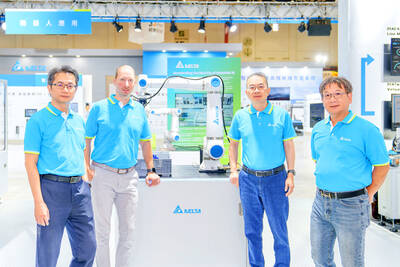HSBC Holdings PLC is seeking office space in technology-focused London neighborhoods, including Shoreditch, to bolster its fintech capabilities, according to two people with knowledge of the move.
Europe’s largest bank hired real-estate broker CBRE Group Inc to find 4,600m2 of space, almost the same size as a US football field, in areas including Old Street and Shoreditch, the people said.
The neighborhoods are home to a cluster of startups and a nexus of hipster culture.
The office would be focused on digital growth at the bank, the people said.
HSBC would join other firms that already operate technology-focused offshoots in east London neighborhoods, such as Barclays PLC’s so-called fintech accelerator in Whitechapel.
While the bank in February decided to keep its headquarters in London rather than move back to Hong Kong, where it was founded, it is expanding out of its 45-floor skyscraper in Canary Wharf.
HSBC plans to move 1,000 retail bank workers to Birmingham, Britain’s second-biggest city, to cut costs and separate its UK consumer operations from the investment bank.
A spokeswoman for the bank declined to comment on the lender’s expansion plans.
Banks have traditionally kept their research and development in-house, building proprietary systems behind closed doors to shield them from the competition.
However, as the cost of developing new technologies rises and more nimble startups pioneer new ways to bank, many established lenders are becoming more open to external partnerships.
Citigroup Inc, Banco Santander SA, UBS Group AG, Wells Fargo & Co, and Banco Bilbao Vizcaya Argentaria SA are among about two-dozen financial giants hosting accelerators, hackathons and competitions to bring startups to their doors.
Some, such as Barclays and Royal Bank of Scotland Group PLC, have dedicated floors for digital development, with markedly different decor and dress codes to attract younger staff that would otherwise gravitate toward the technology industry.
Rents for the best office space in Shoreditch are about £65 (US$85) a square foot (0.92m2) annually, compared with about £47.50 in the Docklands and £70 in the City of London financial district, according to data compiled by broker Jones Lang LaSalle Inc.
Additional reporting by staff writer

SETBACK: Apple’s India iPhone push has been disrupted after Foxconn recalled hundreds of Chinese engineers, amid Beijing’s attempts to curb tech transfers Apple Inc assembly partner Hon Hai Precision Industry Co (鴻海精密), also known internationally as Foxconn Technology Group (富士康科技集團), has recalled about 300 Chinese engineers from a factory in India, the latest setback for the iPhone maker’s push to rapidly expand in the country. The extraction of Chinese workers from the factory of Yuzhan Technology (India) Private Ltd, a Hon Hai component unit, in southern Tamil Nadu state, is the second such move in a few months. The company has started flying in Taiwanese engineers to replace staff leaving, people familiar with the matter said, asking not to be named, as the

The prices of gasoline and diesel at domestic fuel stations are to rise NT$0.1 and NT$0.4 per liter this week respectively, after international crude oil prices rose last week, CPC Corp, Taiwan (台灣中油) and Formosa Petrochemical Corp (台塑石化) announced yesterday. Effective today, gasoline prices at CPC and Formosa stations are to rise to NT$27.3, NT$28.8 and NT$30.8 per liter for 92, 95 and 98-octane unleaded gasoline respectively, the companies said in separate statements. The price of premium diesel is to rise to NT$26.2 per liter at CPC stations and NT$26 at Formosa pumps, they said. The announcements came after international crude oil prices

STABLE DEMAND: Delta supplies US clients in the aerospace, defense and machinery segments, and expects second-half sales to be similar to the first half Delta Electronics Inc (台達電) expects its US automation business to remain steady in the second half, with no signs of weakening client demand. With demand from US clients remaining solid, its performance in the second half is expected to be similar to that of the first half, Andy Liu (劉佳容), general manager of the company’s industrial automation business group, said on the sidelines of the Taiwan Automation Intelligence and Robot Show in Taipei on Wednesday. The company earlier reported that revenue from its automation business grew 7 percent year-on-year to NT$27.22 billion (US$889.98 million) in the first half, accounting for 11 percent

A German company is putting used electric vehicle batteries to new use by stacking them into fridge-size units that homes and businesses can use to store their excess solar and wind energy. This week, the company Voltfang — which means “catching volts” — opened its first industrial site in Aachen, Germany, near the Belgian and Dutch borders. With about 100 staff, Voltfang says it is the biggest facility of its kind in Europe in the budding sector of refurbishing lithium-ion batteries. Its CEO David Oudsandji hopes it would help Europe’s biggest economy ween itself off fossil fuels and increasingly rely on climate-friendly renewables. While